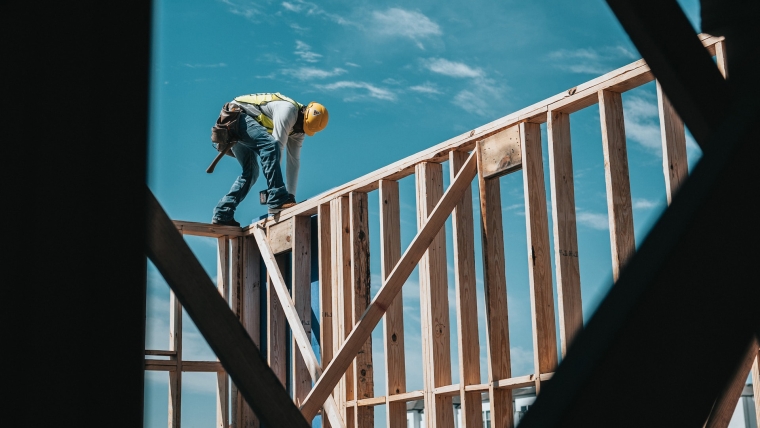
The number of new homes being consented continues to decline but the rate of decline is slowing, suggesting the slump in new residential construction may be near the bottom.
The latest figures from Statistics NZ show that 33,530 new dwellings were consented in the 12 months to May this year.
That was the third consecutive year to May that the number of new dwelling consents has declined, from 51,015 in the year to May 2022, to 45,164 in year to May 2023 and 34,851 in year to May 2024.
However, the annual rate of decline is slowing, from -11.5% in year to May 2023, to -22.8% in year to May 2024 and -3.8% in year to May 2025.
In the month of May this year, 3151 new dwellings were consented, down just 0.8% compared to May last year.
The slowdown in dwelling consents is patchy depending on the type of dwelling.
In the 12 months to May, dwellings for stand alone houses were up 2.4% compared to the previous 12 months and apartment consents were up 6.2% compared to the previous 12 months, while retirement village units were down 4.5% for the year which follows a 47.3% decline in the previous 12 months, and townhouses and home units were down 11.0%.
The total estimated value of residential building work consented in the 12 months to May this year was $17.391 billion, -4.5% compared to the previous 12 months.
The value of non-residential building work being consented has also slowed, but not by as much as residential construction.
In the 12 months to May, $9.023 billion of non-residential building work was consented, which includes commercial buildings such as shops, offices and factories, and non-commercial buildings such as schools and hospitals.
That was down just 2.3% compared to the year to May 2024, which followed a 7.0% decline in the year to May 2024.
Altogether, the total value of all construction work consented in the 12 months to May this year was $26.981 billion, -3.6% compared to the previous 12 months.
That followed a 13.1% decline in the year to May 2024.
The graph below shows the monthly trend in dwelling consents issued by dwelling type.
The comment stream on this story is now closed.
Building consents - type
Select chart tabs
8 Comments
V shaped recovery or L shaped
L shaped unless there's some meaningful change to the dire financial situation most households are in.
This is good news for property owners and the banks in NZ. The last thing they need is more housing supply. Good work by the government for absolutely smashing the building sector in less than 2 years - 12,000 job losses and hundreds of business closure across the sector and supply chain. That takes some special fiscal policy decisions from the government - it's actually quite impressive.
Wouldn't want to be trying to hire back the lost 12000 if/when the industry recovers. Most of them are now enjoying life in Aussie I would expect.
The loss of productive capacity is shocking and had to be a deliberate economic choice by the government. It wouldn't be allowed to happen in Australia.
Ozzy has unions with actual sway unlike NZ where the workers get stomped on. Not discountin many ot great pay rises since 2020
I take a counter view. The residential building construction have had too good for too long. Those building HNZ houses were coining it, not necessarily the tradies but the owner/manger side. It was a case of Labour saying give us the price and we'll write the cheque. Unfortunately there has been some over re-action.
Depends what you consider an over reaction. The government are doing exactly what they said they would do and what voters asked for. The loss of 12,000 jobs and hundreds of business in the construction sector due to multiple construction contracts being terminated by the government is what gave us the money for our tax cuts. We voted for those job cuts and thousands more in the election and we are getting what we asked for.
If you want a strong building sector you have to pay higher taxes and have higher government spending. NZ voters didn't want that and made their choice. A lot of these workers can go to Australia if they want to - we don't want skilled workers in NZ contributing to housing supply. We need to slow down house building to protect owners and banks from the downside risks of falling value.

We welcome your comments below. If you are not already registered, please register to comment
Remember we welcome robust, respectful and insightful debate. We don't welcome abusive or defamatory comments and will de-register those repeatedly making such comments. Our current comment policy is here.